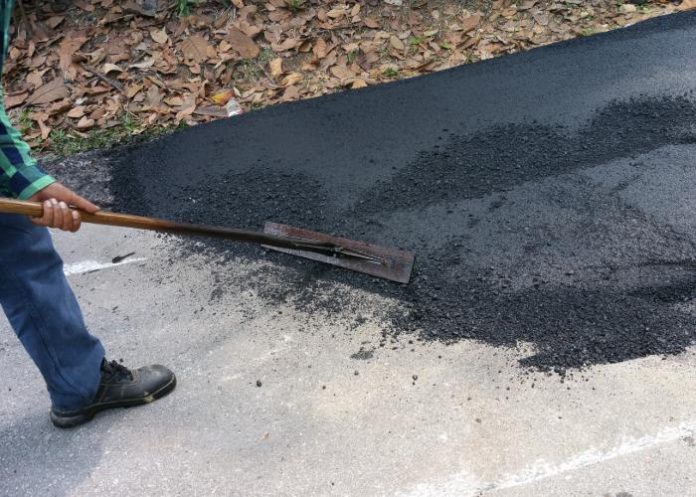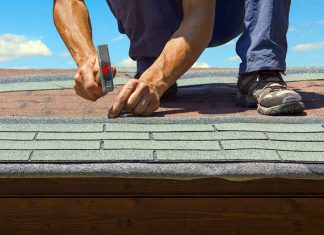If you’re tired of the cracks and stains in your driveway and are ready to install a new driveway. You may be trying to decide between a few different types. When it comes to choosing one, there are a few other options. The most popular ones are concrete, asphalt, and gravel. While all three of these are great choices, there are pros and cons of each one, and below, we will go over the top 7 reasons asphalt surpasses each one. Be sure to click “visit website” for more information about asphalt paving.
1. Cost
Asphalt is much less expensive than concrete, costing roughly $2.00-$4.00 per square foot, whereas you can expect to pay between $4.00-$7.50 per square foot for concrete. In addition to the installation costs of concrete, the finishes, details, and staining may bring your expenses up to $18.00 per square foot.
While gravel driveways are less expensive than asphalt paving, you’ll need to re-gravel your driveway every few years. If you’re looking for the most inexpensive option, you need to talk to your paving contractor before deciding. In the long run, the upkeep and re-laying of gravel may end up costing you much more.
2. Appearance
With its dark black appearance, asphalt appears more attractive than other types of driveways. Asphalt paving is rolled and compressed during installation giving it a compressed giving it a smooth, seamless look. It also has different tints and finishes if you want to choose a different color than black.
Gravel driveways are somewhat limited on color choices and aren’t as attractive as asphalt paved driveways. Concrete pavement can come in many colors and designs because it easily works with stamping, staining, and tinting.
3. Maintenance and Repair
Asphalt driveways should be sealed a year after installation and every 4-6 years afterwards to retain their color and extend their life. Although concrete doesn’t need to be sealed as frequently as asphalt, it will enhance its look and preserve the finish. However, degreasers need to be used to remove oil, fuel, and other stains that build up over time, increasing its cost. To properly maintain your gravel driveway, you’ll need to rake it to level the surface, remove leaves and other debris. If you leave the waste, it can be difficult to drive or walk safely. If you don’t want to rake your driveway, you’ll need to lay more gravel down a few times a year to keep it level.
Both concrete and asphalt crack; however, asphalt is much easier and cost-effective to repair. When asphalt cracks, you can apply patches plus the repairs blend in well with the rest of the driveway. However, concrete is difficult to repair, and patched areas are unattractive and easily noticeable. Although gravel driveways don’t crack, they do frequently develop potholes, so you’ll have to lay down gravel a few times a year.
4. Weather
Depending on where you live, your driveway is affected. Asphalt holds up well to extreme weather because of its smooth, binding surface. It absorbs the heat from the sun, so in the winter, it makes snow and ice melt quicker than either concrete or gravel. Concrete doesn’t do well with snow or ice because salt needed to melt the snow can deteriorate. The freezing and thawing of concrete can cause gaps and holds in your driveway. You shouldn’t use now plows on gravel driveways because it pushes gravel out of your driveway, so you’ll have to fill the holes. However, you can leave snow on your driveway because of its traction.
5. Installation
Paved asphalt driveways don’t take long to install, and you can drive on it in just 24-48 hours once it’s laid down. Your installation professionals will make sure grading and sloping are correct to ensure proper draining. Then they prepare the subbase to ensure the stability of the asphalt. Once that’s done, they then proof roll to ensure a seamless appearance. Next, the asphalt surface is installed along with the joints, and finally, the final roll is done.
Concrete paving takes longer, and because it takes so long to set and dry, it can take a few weeks until you’re able to drive on it. The first step the installation professionals have to do when installing concrete is to excavate the topsoil, lay down wooden forms, and add sand and gravel to support the base. The next step is to lay down reinforcing mesh then pour the concrete. Next is to smooth out and level it and finally cure for roughly four weeks to make sure it hardens completely.
Gravel driveways are easy to install, and you can use the driveway the same day that it’s laid down. Like concrete and asphalt, the installation experts will need to stake the area and dig out the soil deep enough to ensure the gravel will be level with the rest of your yard. Then the contractors will lay down a weed barrier then lay down two to three levels of stone.
6. Longevity
While concrete does last longer than asphalt paving, it’s only ten years. You can expect concrete driveways to last around 30-45 years while asphalt driveways last 25-40 years. On the other hand, Gravel can last up to 100 years with proper maintenance. However, the gravel has to be repaired, and new layers must be laid every few months. Although concrete and asphalt paving may not last 100 years, you don’t have to worry about the amount of upkeep gravel takes.
7. Safety
Asphalt paving offers a lot of traction, plus it draws heat, making it extremely safe in the winter months. It isn’t harmed by ice or snow. It doesn’t have the glare that other types of pavements have during the summer months. It’s smooth, so you don’t have to worry about rough, uneven surfaces like gravel has, so you don’t have to worry about damaging your vehicles.
Gravel and concrete can be slippery and be harmed by different snow removal processes. For example, you shouldn’t use snowplows on gravel and salt, and other snow removal chemicals that harm concrete. Large potholes can occur quickly during the winter months because of snow and ice buildup. Concrete can pose a safety hazard because there’s minimal traction.
Paving is Not a DIY Project
While it may be tempting to try to do asphalt paving, concrete, or gravel yourself, you need to know that if not done right, they won’t last long. Each of these requires professional knowledge to do them. Otherwise, you may have to make costly repairs or damage to your property.















